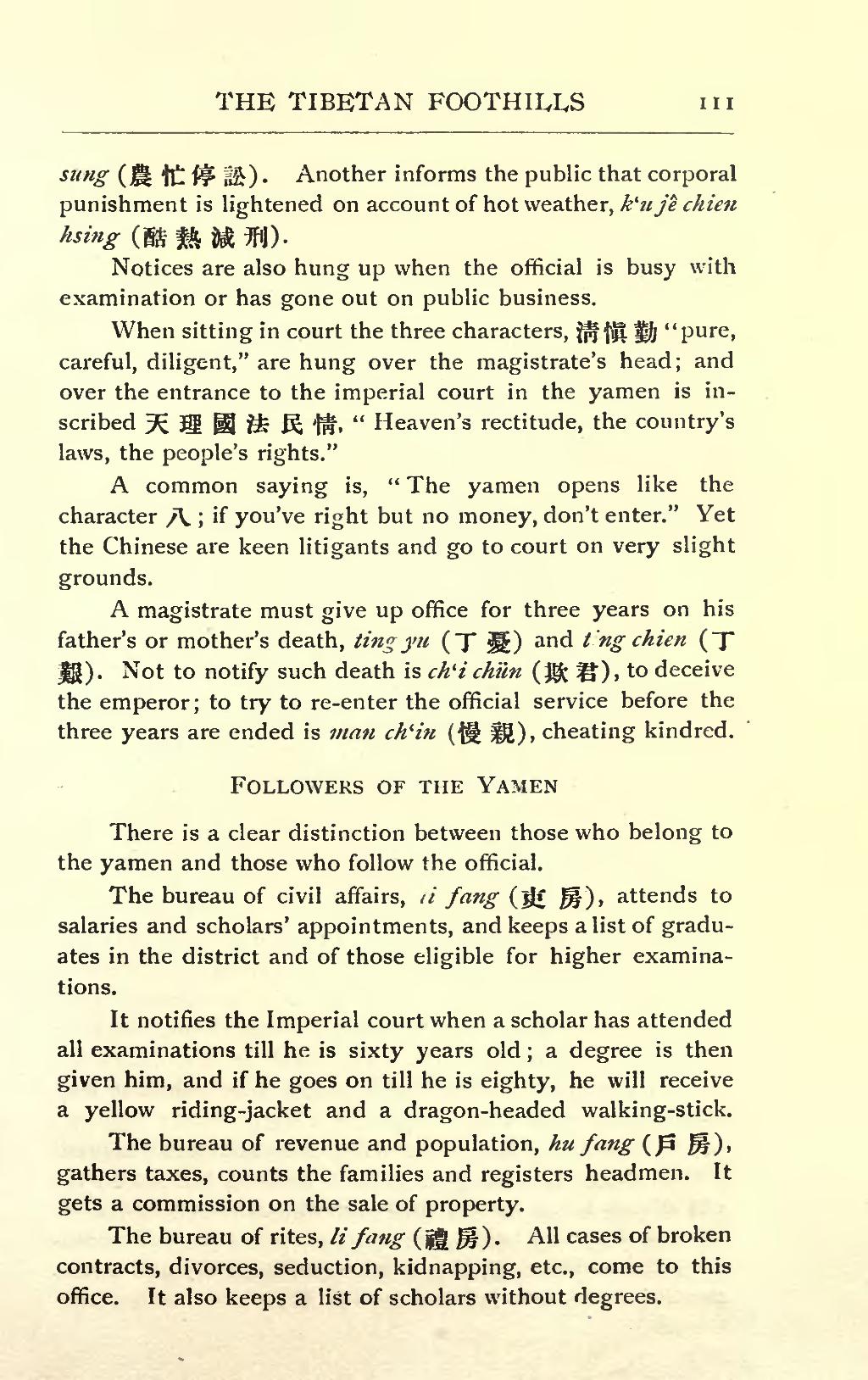sung (農忙停訟). Another informs the public that corporal punishment is lightened on account of hot weather, k‘u jê chien hsing (酷熱減刑).
Notices are also hung up when the official is busy with examination or has gone out on public business.
When sitting in court the three characters, 淸慎勤 "pure, careful, diligent," are hung over the magistrate's head; and over the entrance to the imperial court in the yamen is inscribed 天理國發民情, "Heaven's rectitude, the country's laws, the people's rights."
A common saying is, "The yamen opens like the character 八; if you've right but no money, don't enter." Yet the Chinese are keen litigants and go to court on very slight grounds.
A magistrate must give up office for three years on his father's or mother's death, ting yu (丁憂) and ting chien (丁艱). Not to notify such death is ch‘i chün (欺君), to deceive the emperor; to try to re-enter the official service before the three years are ended is man ch‘in (慢親), cheating kindred.
Followers of the Yamen
There is a clear distinction between those who belong to the yamen and those who follow the official.
The bureau of civil affairs, li fang (吏房), attends to salaries and scholars' appointments, and keeps a list of graduates in the district and of those eligible for higher examinations.
It notifies the Imperial court when a scholar has attended all examinations till he is sixty years old ; a degree is then given him, and if he goes on till he is eighty, he will receive a yellow riding-jacket and a dragon-headed walking-stick.
The bureau of revenue and population, hu fang (戶房), gathers taxes, counts the families and registers headmen. It gets a commission on the sale of property.
The bureau of rites, li fang (禮房). All cases of broken contracts, divorces, seduction, kidnapping, etc., come to this office. It also keeps a list of scholars without degrees.

